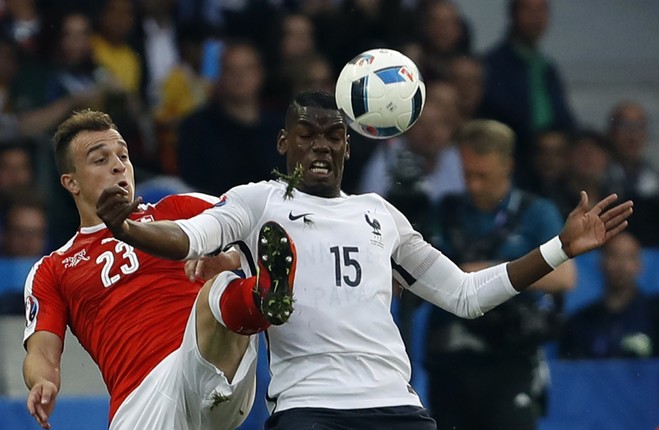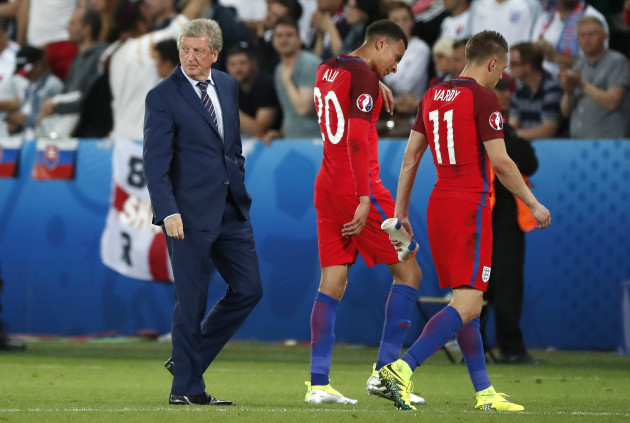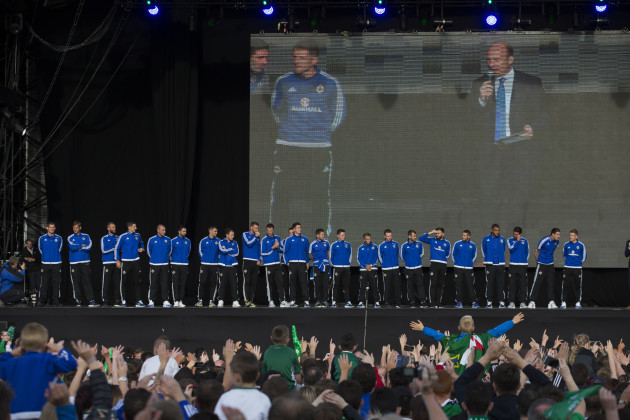THE EXPANSION OF the European Championships to include 45% of Uefa’s member associations was initially viewed with scepticism by some commentators, who felt that the enlarged tournament would water down the quality of the continent’s premier international competition.
But it hasn’t been the inclusion of a further eight teams that has diminished the overall quality of the tournament, rather the format that Uefa has implemented for Euro 2016 this summer.
The 24-team tournament has replicated a similar structure as to the four World Cups from 1982, but the design has lent itself to some drab matches in the opening stages of the competition.
And we shouldn’t be surprised, the group stages consisted of 36 matches – 3,240 minutes of football to reduce the tournament from the 24 teams to the final 16, resulting in an average of 1.92 goals per game, the lowest average since 1992, with the last round of group matches proving just some examples as to what was wrong with Uefa’s structure.
Switzerland and France opened the last round of matches and played out a lifeless goalless draw. Both sides were happy to go through the motions with the draw guaranteeing Swiss progression and the French topping the group.
In Group B, England played a second-string team against Slovakia, knowing that they had a qualification practically guaranteed, while Slovakia were content to sit back for the 90 minutes aware a draw would see them as a best third-place team. Yet another drab encounter.
This is not to criticise the teams above, they were simply operating the way they felt was the best for them to progress within the system they were in. After all, Ireland benefited from this structure and Robbie Brady’s header against Italy will go down as one of the Irish football team’s greatest-ever moments.
And this not to say the group stage in the World Cup is perfect either, there are plenty of dreary matches there too, but the European Championships should aim to be a platform for the best teams to go out and beat their opponents, as it currently stands, the incentive is not there.
Northern Ireland deservedly received a heroes welcome when they returned home from France, qualification for the championships was a fine achievement in itself that deserves to be recognised, but it may have been lost during all of the euphoria they did lose three out of the four matches during the tournament.
Michael O’Neill’s side were relatively content to keep the score down against Germany in their final group game, rather than defeat the world champions, but in the end that tactic proved vital for the North to make the next round. There’s something not right about that.
One possible solution to the current structure would be to change the rules to allow only the team that finishes top of their group to be guaranteed of qualification to the next round, with the two best second-placed teams also progressing. In the process, removing the round of 16 and going straight into the quarter-finals. This could result in more expansive games and more goals, with three points becoming even more important.
After next week’s final will have the usual dissection of the tournament, which has failed to match many people’s expectations.
Uefa and Fifa have been rightly been criticised for corruption within their organisations over the past couple of years, but to their credit, they have always tried to expand the sport to new territories across the world.
The expansion of the World Cup over the last couple of decades has seen the accelerated the development of football in African and Asian countries. No longer would meeting Cameroon, Ivory Coast, Japan or South Korea be seen as a walkover.
And this year’s tournament will do wonders for football in Albania, Iceland, Northern Ireland, Slovakia and Wales, who have all made their European Championship debut this year.
At the start of the qualification process for these championships, several teams would have been motivated that they have a realistic chance of making it to the finals, making the qualification process more competitive than it has been recent years.
Teams such as Scotland, Finland and Montenegro will be more galvanised than ever for the 2020 edition after watching the exploits of the so-called minnows in France.
The underdog narratives have been the highlight of the competition to date, so when we reflect on the tournament it wasn’t the fact we had more teams that was the problem, but rather the structure all of the teams found themselves in.
The42 is on Snapchat! Tap the button below on your phone to add!


